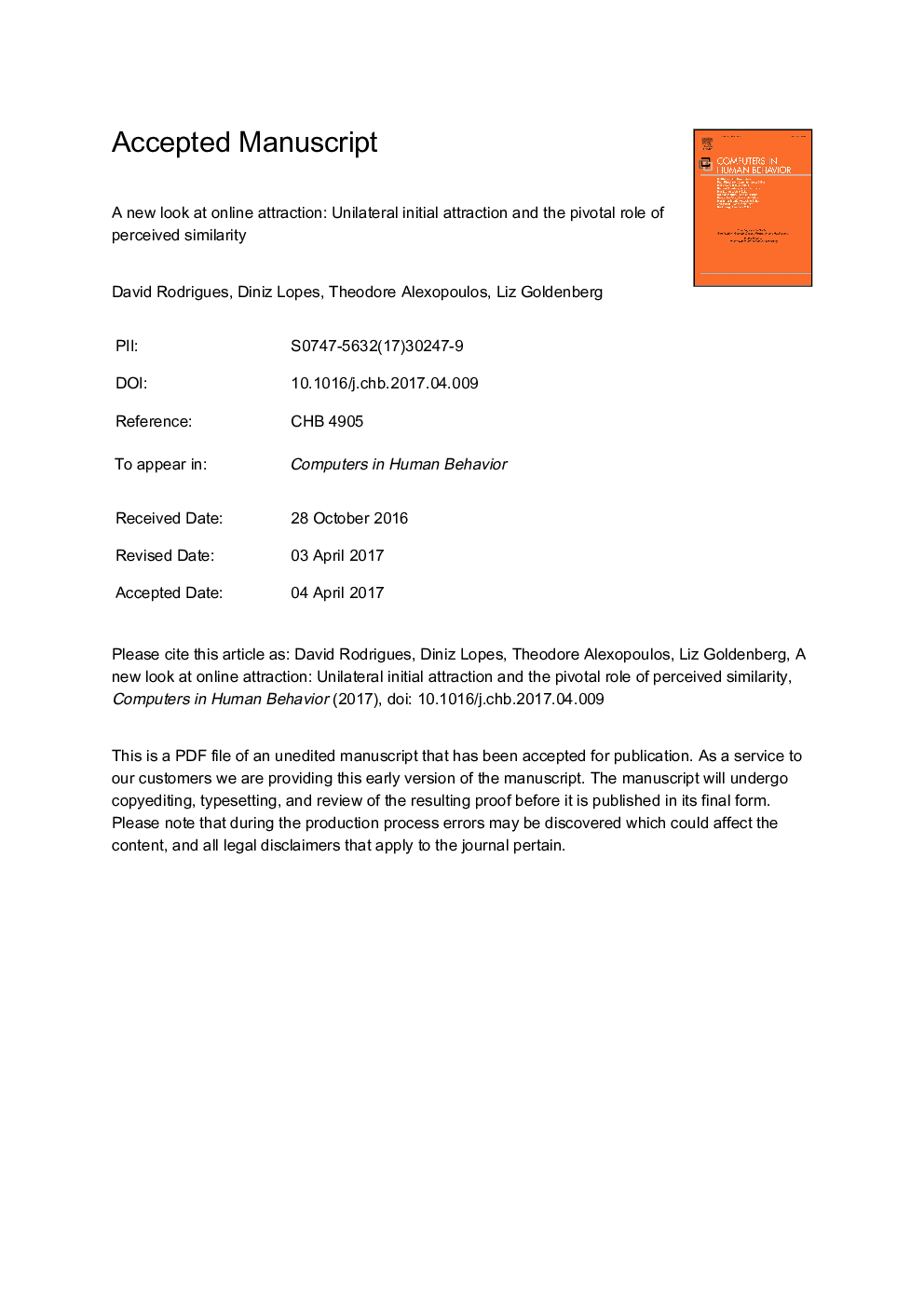| Article ID | Journal | Published Year | Pages | File Type |
|---|---|---|---|---|
| 4937231 | Computers in Human Behavior | 2017 | 43 Pages |
Abstract
Although perceived attractiveness has consistently been shown to influence interpersonal attraction, perceiving another person as more similar to oneself is also highly important for attraction. We examine how both perceptions impact unilateral initial attraction (UIA), defined as a positive reaction following the perception of an unknown target within minimal information settings. In three studies, we examine this phenomenon in a social networking site scenario, by asking participants to imagine they were browsing such a site. In Study 1, participants reported greater UIA for an attractive target, and this effect was partially mediated by perceived similarity. In Study 2, participants reported greater UIA for a target neutral in attractiveness, after being conceptually primed with similarity. This effect was mediated by perceived attractiveness. In Study 3, both perceived similarity and perceived attractiveness were associated with increases in UIA, which in turn was associated with greater interest to interact with a target neutral in attractiveness. These novel findings show the importance of perceived similarity for UIA and the importance of this phenomenon for online interactions. We conclude by discussing general implications for online social activities, specifically relationship development.
Keywords
Related Topics
Physical Sciences and Engineering
Computer Science
Computer Science Applications
Authors
David Rodrigues, Diniz Lopes, Theodore Alexopoulos, Liz Goldenberg,
